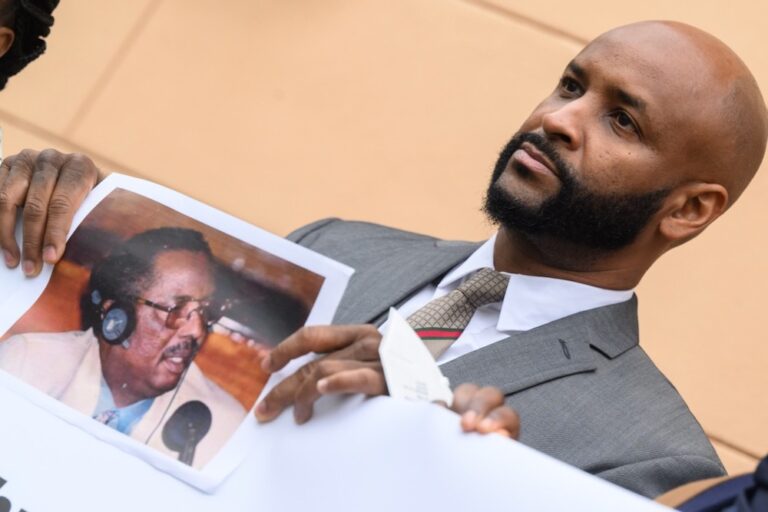"We put before the minister our concerns for the need to reform all repressive laws and their provisions, as these are inimical to press freedom," said the NUSOJ delegate.
(NUSOJ/WAJA/IFEX) – 12 November 2010 – A delegation of journalists’ rights advocacy organisations, for the first time in four years, met with a senior official of the Gambian government to deliberate issues concerning the shaky press freedom situation in the country and the hard-pressed urgent need to create a conducive environment for Gambian journalists by removing the fear of insecurity and organised oppression.
Minister for Justice and Attorney General, Edward Gomez, met at his office on Wednesday the delegation representing Federation of African Journalists (FAJ), West African Journalists Association (WAJA), ARTICLE 19, International Federation of Journalists (IFJ), Media Foundation for West Africa (MFWA), National Syndicate of Cameroonian Journalists (SNJC), National Union of Somali Journalists (NUSOJ) and Nigeria Union of Journalists (NUJ).
“We put before the minister our concerns for the need to reform all repressive laws and their provisions, particularly the Criminal Code Amendment Act 2004, as these are inimical to press freedom, the safety of journalists and the practice of independent journalism in The Gambia,” said FAJ president Omar Faruk Osman. “We have been frank and open to the minister that our Gambian colleagues have developed a strong sense of fear and insecurity which has a serious negative impact on their work,” he added.
The delegation also raised concerns on the situation of Gambian journalists who are in exile and are afraid of coming back to their country to pursue the profession of their choice freely and without fear of endangering their lives. “Gambian journalists in exile in Africa, Europe and North America were forced to be in exile when intimidation and threats have been unprecedented with lots of journalists arrested and some dragged to court under false information charges,” said WAJA President Mohamed Garba who expressed that “there is a need to look into the safe return of Gambian journalists with a guarantee that they can execute their noble duties without impediment”.
Minister Gomez welcomed the engagement of the delegation for dialogue and said that the Gambian government is prepared to take forward the started dialogue and promised to look into laws and their provisions, including the Criminal Code Amendment Act 2004, and the Newspaper Amendment Act 2004, which are hostile to press freedom in line with international standards on free expression. The minister promised the delegation that during his term in office, no journalist will be denied his/her legal rights. The delegation also talked about the continued disappearance of Chief Ebrima Manneh, though the minister said that Manneh is not being held by any government security authority.
FAJ and WAJA fully believe that this is the beginning of a very fruitful dialogue between the Gambia government and the African journalists’ community in bridging the gap that has existed over the past few years. “We are cautiously optimistic about the outcome of our meeting but we, as a journalists defence community, need to push forward the dialogue to re-establish a conducive environment for Gambian journalists without fear or restrictions,” added Osman.
Federation of African Journalists (FAJ)
National Syndicate of Cameroonian Journalists (SNJC)
Nigeria Union of Journalists (NUJ)


